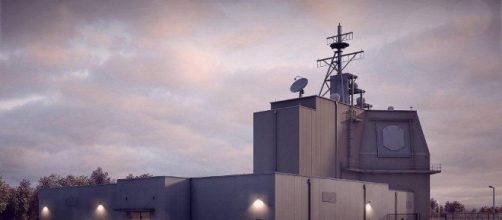Japan plans to buy an Aegis Ashore missile defense system from the United States. The system is said to greatly improve Japan's defense against possible attacks from North Korea. However, China is not happy with the arrangement being made by Washington and Tokyo.
What is the Aegis missile defense system being purchased by Japan?
According to the Nikkei newspaper, the Aegis Ashore missile defense system is a land-based version of the Aegis system used by the naval ships. Japanese sources are not reluctant to admit that the main reason for the purchase is the imminent threat coming from North Korea.
According to Japanese commentators, the said Aegis system will cost $700 million each and Japan needs three at most for a countrywide defense. Aside from this, the Japanese self-defense force is starting to loosen the tight restrictions for a more versatile and active military.
Aside from this, Japan is also planning to buy the Terminal High Altitude Area Defense or THAAD, which South Korea currently employs as its mainline defense against ballistic missiles.
What is China's reaction towards Japan's Aegis plan?
China's expansionist policy will be greatly hampered by a strong pro-American Japan. China is planning on building a similar missile defense system that will rival the THAAD. Beijing had enlisted the help of Russia to develop such a weapon, however, with the buildup of U.S.
forces in the Korean peninsula, it is slowly becoming an arms race not with North Korea alone, but with the industrial might of China.
Japan and the United States plans on expanding sanctions against North Korea
U.S. President Trump and Japanese Prime Minister Shinzo Abe had agreed to expand the current sanctions against North Korea. Currently, Pyongyang is banned from trading all kinds of goods, especially metals, coal and oil and only items needed for "livelihood" purposes are allowed.
The stringent sanctions have considerably affected Pyongyang's ability to expedite its missile research. However, with the subtle help coming from China, Pyongyang's nuclear and ballistic ambition continues on.
Beijing is the only source of resources for North Korea and with China's continued support under the guise of "humanitarian" aid, North Korea thrives. However, the biggest problem with the United States and Japan is the stance of the new South Korean government of reopening diplomatic talks with the north.
Even if reunification is a wonderful prospect for North and South, unification of Korea will favor China more as it can easily influence a united Korean government to come under China's wing and benefit from an expanded economic zone through the "One belt one road" initiative that is aimed to create a massive interconnected continent sharing a common economic goal of mutual prosperity.


